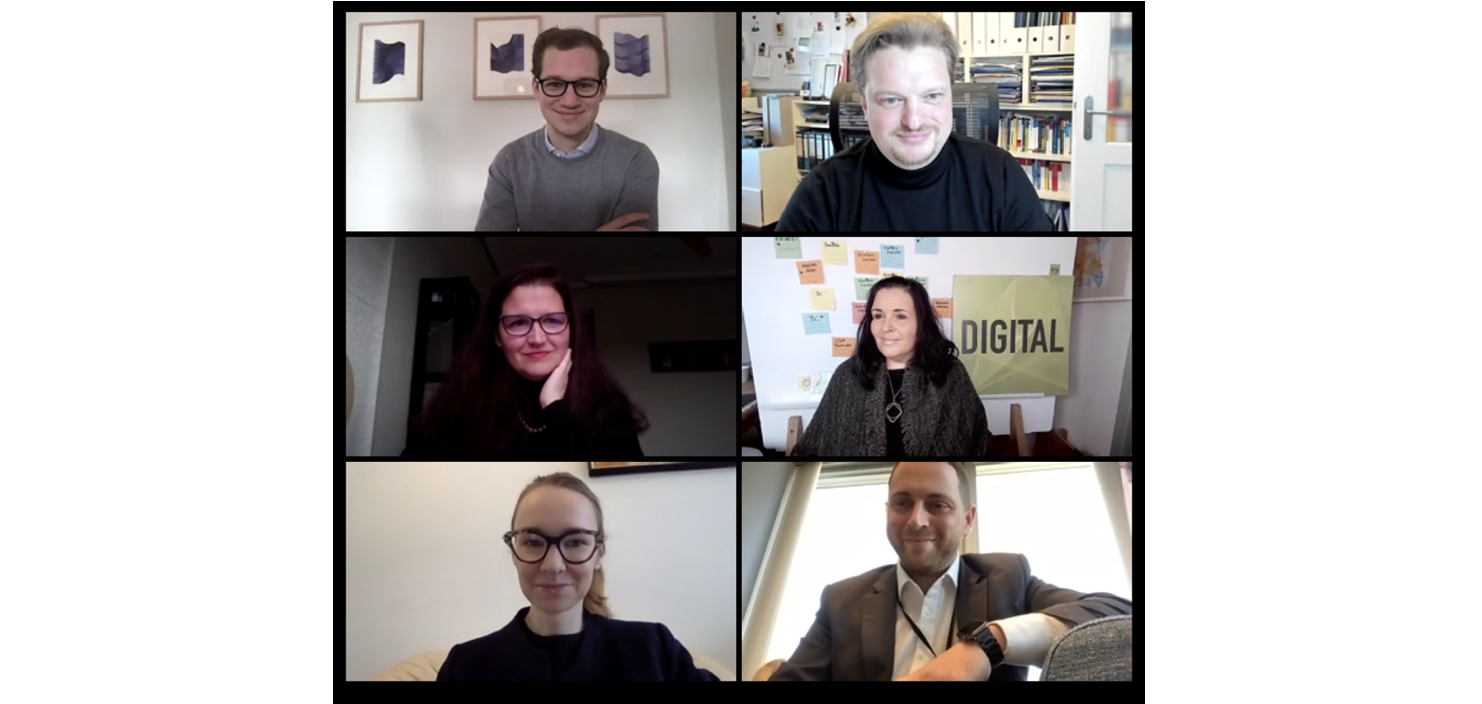Social Selling & Changing Attitudes Towards Entrepreneurship in Europe

The pandemic has encouraged a new wave of digitisation that will revolutionise our life as we know it. Businesses transform their engagements with customers, employees and suppliers to leverage the crisis as an opportunity to drive innovative digital models and gain increased efficiencies. So does the consumer, by moving dramatically online. Stakeholders across all sectors need to take advantage of these contemporary trends as well as properly support citizens taking entrepreneurial initiative through apt policies.
On Thursday, February 4th, 2021, SME Connect hosted the Webcast “Social selling & Changing Attitudes Towards Entrepreneurship in Europe”. Moderated by DR. HORST HEITZ, Chair SME Connect Steering Committee, the virtual meeting brought together ALEX AGIUS SALIBA MEP IMCO, EMPL & AIDA Committees, Rapporteur on the Digital Service Act, Chair SME Connect Platform Economy Working Group; ANA M. ROMERO-MARTÍNEZ Associate Professor in Strategic Management and Entrepreneurship, Vice Dean for International and Economic Affairs, Complutense University of Madrid; BENEDIKT BLOMEYER Manager European Affairs, with Allied for StartUps; MAIKE PETERSEN Digital Marketing Expert, Author of the book „Rock your Digital Business“; KAMILE KASELYTE Founder of KK Consulting – Marketing and PR for SMEs and Tech Startups.
In his welcome speech, ALEX AGIUS SALIBA MEP highlighted Europe’s reliance on a dependable, sophisticated digital infrastructure. “Platforms can benefit both consumers and businesses by providing easier access to services and facilitating transactions,” he stated. Alex believes it is also important to keep in mind how people feel about entrepreneurship. He understands the need to create the right environment for entrepreneurs by eliminating barriers and putting in place instruments that will give an impetus to more forward-thinking and entrepreneur-friendly policies and social standards.
PROF. ANA M. ROMERO-MARTÍNEZ presented the Amway Global Entrepreneurship Report 2020. Among the top 3 findings, participants responded that starting their own business allows them to work on something they are passionate about and be their own boss, guaranteeing opportunities for a complementary source of income. There’s a flip side to that coin though. While most entrepreneurs under 35 actively use social media and other instruments of the digital toolkit to develop their businesses, people aged over 35 believe they are not skilled enough to do so. Taken as imperative the accelerating schift towards inernet-rooted business models, it presents a challenge that needs to be addressed, especially because many SME owners in Europe are on the older side and they still have trouble with digitalization.
During the debate, BENEDIKT BLOMEYER remarked that “we should support as many forms of entrepreneurship as we can, especially in the aftermath of COVID19”. Social selling itself does not change the character of European enterprises, it is the customer that is. People tend to increase the time they spend online and a great number of customers gravitate towards online brands. This dynamic should be regarded as a window of opportunty by SMEs no matter the size. However, legal clarity is still needed for digital entrepreneurs and the upcoming Digital Services Act and Digital Markets Act offer the chance to establish a forward-looking policy framework. “The regulation can protect the consumer, but at the same time it may turn into a major setback for small companies.”
MAIKE PETERSEN highlighted the importance of a genuine personal connection as the core drive behind social selling. “It’s not about products,” she commented, “it’s about reaching out with the right content at the right time.” Besides raw e-commerce practices, essential part to business growth is making efforts of gaining customers’ trust, respect and loyalty and building a network. Every company has its own personality, which needs to be revealed to the public in order to gain their interest and build up the brands’ image. Social selling is one effective way to do that.
As a voice of business owners, KAMILE KASELYTE further reiterated how everything has moved online due to the pandemic and having a unique approach and clear value proposition is necessary to stand out among competitors.
Ultimately, growing Europe’s entrepreneurial spirit is paramount to boost recovery and economic growth after COVID-19. Social selling specifically represents an alternative for many to approach entrepreneurship in a flexible way by relying on their network and supplementing their income. Establishing a legally sound and forward-looking policy framework will ensure that Europe takes full advantage of the opportunities offered by the digital infrastructure and remains globally competitive.